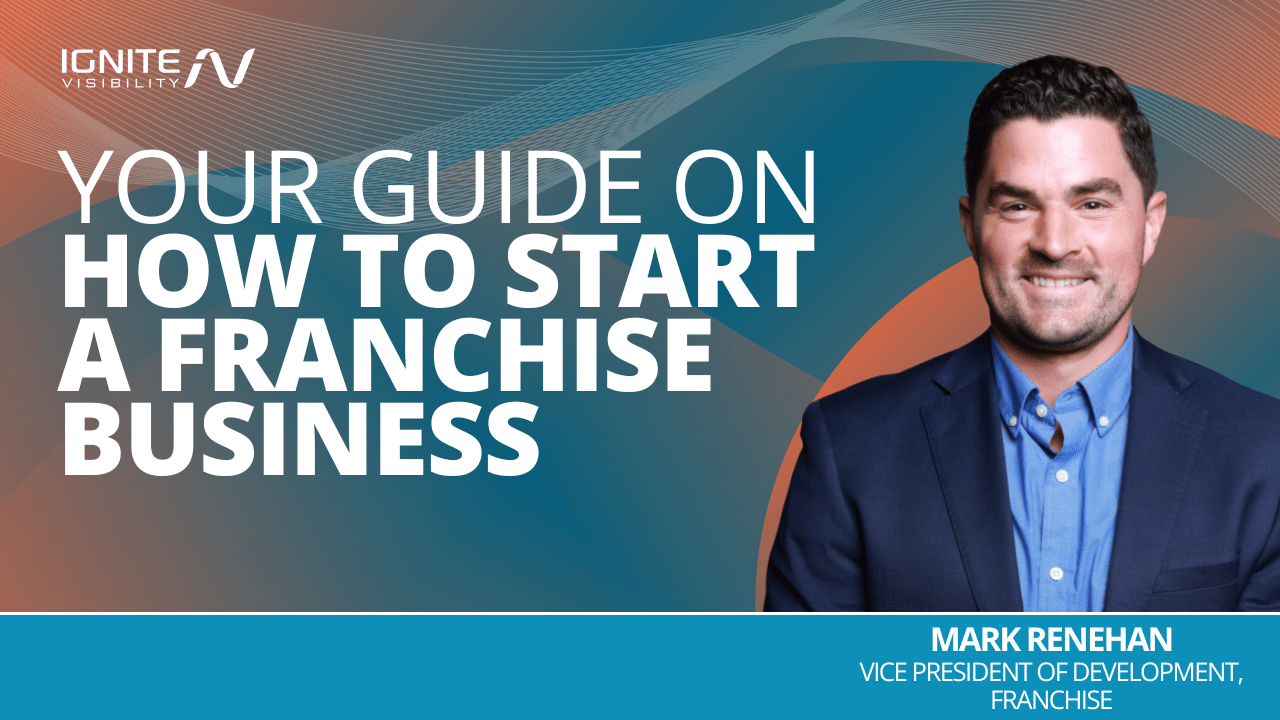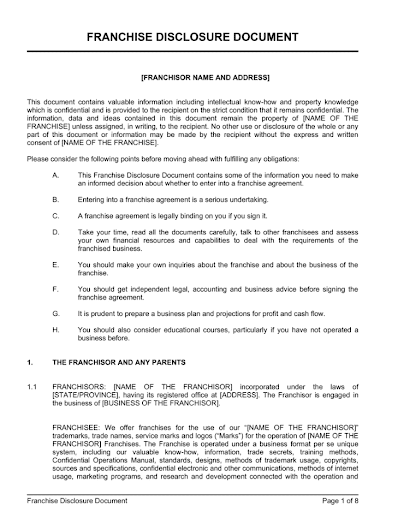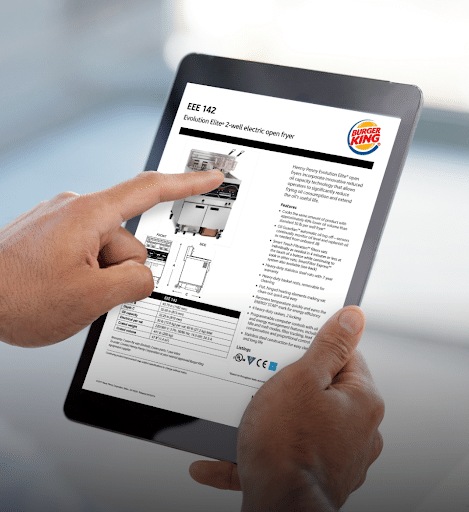
Have a replicable business model that you think could back a multi-location business? You might have a viable franchise on your hands. However, there are many aspects to consider when it comes to franchising, from budgeting and procuring resources to maintaining several locations.
In this blog, Mark Renehan, Vice President of Franchise Development, will explore how to start a franchise and all of what that entails, which could help you develop a clear vision for your business.
What You’ll Learn:
- Why Franchising Is a Scalable Business Model
- Step-by-Step: How to Start a Franchise Business (From Concept to Launch)
- How Much Does It Cost to Start a Franchise?
- Funding Options: How to Start a Franchise With NoMoney
- Franchise Business Models: Licensing vs. Franchising
- Pitfalls to Avoid When Starting a Franchise
My Expert Opinion on How to Start a Franchise
Today, according to Statista, there are over 800,000 franchise businesses in the U.S. alone, and that number continues to grow. Depending on the scalability of your business model and the competition in your industry, you may want to develop a franchise of your own.
There are many franchise industries that are trending today, and you might find that your business fits right in as you expand to new locations and target markets. Just keep in mind that not all businesses will benefit from franchising, in which case you might want to opt to develop new branches without actually turning your business into a franchise.
If you have what it takes to become a franchisor and effectively manage multiple franchisees and locations, this model might be right for you. You can better determine whether franchising is a good move based on certain criteria, such as your industry’s compatibility with the franchise model, your company’s current economic health, and the size of your market.
Why Franchising Is a Scalable Business Model
As more and more businesses look to scale their operations and grow, there is an increasing number of franchise establishments out there. While this business model isn’t for every company, it could be the key to expansion if you have a highly scalable and proven business model.
Consider the benefits of franchising vs. growing a business with traditional branches, such as:
- The chance to expand your brand and rapidly increase recognition without steep upfront expenses.
- More time to focus on additional business opportunities as franchisees help run your business.
- Increased profitability through a combination of franchisee and royalty fees.
- Continually improve the franchise based on feedback from franchisees and their individual experience and expertise.
At the same time, there are certain key elements of franchising you need to consider, which will help determine precisely how to start a franchise, including:
- Branding: One major consideration has to do with branding. You must maintain franchise brand consistency across all franchise locations, including creative design elements and your brand voice. However, that branding should be flexible to adapt to the needs of local markets at each location.
- Legal Compliance: Franchisors must ensure their business and each individual franchise maintains compliance with FTC and other laws and regulations. In turn, franchisees must also work to maintain compliance with relevant legislation along with the franchisor’s operational requirements.
- Operations: Franchises should ensure all franchises align with the overarching operational guidelines to maintain consistently high quality and the ideal customer experience across locations. In doing so, franchisors should provide franchisees with plenty of resources, including business systems and operating manuals.
As a franchisor, you will also have multiple responsibilities to consider, including:
- Establishing a clear business model that details all products or services, marketing and recruitment strategies, and operational procedures.
- Developing and providing legal documents to all franchisees, including a Franchise Disclosure Document (FDD) that keeps each franchise location aligned with the needs of the franchise.
- Offering continuous training and support for franchise management and franchise employees, with resources to help guide each franchise’s operations and marketing.
- Keeping branding and quality control consistent across the entire franchise.
- Safeguarding the brand and all intellectual property pertaining to the business.
- Helping franchisees select a site for a new location and assisting with development.
- Managing finances, including royalty fees and franchisee fees to potentially invest funding in enhancing individual locations or expanding operations.
- Maintaining compliance with state and federal legal requirements.
With the right approach to franchising, you could enjoy a long period of success as a franchisor as you continue to grow and connect with wider audiences.
Step-by-Step: How to Start a Franchise Business (From Concept to Launch)
So, if you want to learn how to start a franchise company, the following are some of the basic steps to get your business off the ground:
Step 1: Validate Your Business Model for Replication
Before you start with franchising, you need to determine whether your business model is conducive to franchising. You can do so by developing a proof of concept that demonstrates how your established business has developed a proven track record of success and viability as a potential franchise.
Your business model must also be highly scalable, with the ability for each location to replicate it. You can confirm this by analyzing everything from your operations and support systems to the entire supply chain, ensuring they can facilitate growth across multiple locations.
Also, conduct thorough market research to find out whether there’s sufficient demand to make franchising worthwhile.
Step 2: Maintain Legal Compliance
Another crucial step involves keeping the franchise compliant with all relevant franchise laws.
To maintain compliance on the state and federal level, you need to develop an in-depth Financial Disclosure Document, or FDD, to provide franchisees with all of the necessary information about the franchisor and the franchise’s costs and fees.
Additionally, you must comply with the Franchise Rule under the Federal Trade Commission (FTC), which governs the sale and offer of franchises. For example, to adhere to FTC regulations, you will need to provide franchisees with an FDD in time while disclosing your franchise’s financial performance and other required information.

Step 3: Create Franchise Documentation and Training Systems
Create thorough documentation and training programs for both franchisees and staff who work under those franchisees.
For franchisees, you’ll want to provide an FDD, operational manual, and a franchise agreement, with structured training programs helping efficiently onboard your franchisees. Training should go over various critical topics, including operational procedures, marketing, and customer service.
Franchises should also have access to training manuals, videos, online modules, and more to continue their own training while also enabling them to effectively train new employees at each location.

Step 4: Develop Operational Manuals and Brand Standards
In keeping all locations aligned with the overarching franchise, put together a complete operational manual for franchisees to follow. This manual can go into daily operations, inventory management, quality control procedures, and customer service standards.
Also, be sure to detail brand standards for everything from store layouts and logo usage to interactions with customers, quality control, and marketing requirements.
To enable its franchisees to access critical training programs and continually develop, senior care franchise Griswold Home Care offers a comprehensive training program through CareAcademy, providing in-depth training for all caregivers at every location.

Step 5: Implement Franchise Marketing and Recruitment Strategies
To effectively launch your franchise, you will need strong franchise marketing efforts that connect with prospective franchisees.
A complete franchise marketing strategy could include online marketing, expos, industry publications, and more to build a relationship with valuable potential franchisees.
Your recruitment process should also be thorough to weed out low-quality franchisees, ensuring your franchise owners align with your company’s unique values and have the experience, expertise, and resources to successfully run your locations.
Each location should also have a location-specific marketing strategy that connects with local demographics through social media, geofencing, geotargeting, and other strategies.

How Much Does It Cost to Start a Franchise?
So, how much does it cost to start a franchise, exactly?
In determining how much to start a franchise, let’s break down the potential costs of each major component:
- Legal Documentation: In developing your FDD, franchise agreement, IP, and trademark documentation, you may get help from a franchise lawyer to maintain compliance, which can come with legal fees ranging from around $15,000 to $45,000.
- Operation System Creation: When creating an operations manual and system, you can expect to spend up to about $30,000.
- Franchisee Onboarding and Training Programs: The materials and processes needed to effectively train your new franchisees will cost around $10,000 to $25,000, which could involve reviewing existing materials, drafting role-specific training programs, and more.
- Marketing and Brand Development: You will also need plenty of marketing materials to fuel brand development and recognition across all locations. Website development will be essential here for online marketing, but you will also need signage and other materials, with total costs likely reaching tens of thousands of dollars.
There are plenty of examples of successful franchise startups out there to inspire you.
For example, Dave’s Hot Chicken is a recent quick-service restaurant that continues to expand across the country (and internationally after its establishment in 2017. The cost of owning one of these franchises is about $619,800 to $1,963,000. The company started with humble beginnings as a pop-up in East Hollywood, and has since expanded to 283+ locations in the U.S. alone.
Another up-and-comer is cleaning franchise MaidThis, which took advantage of the niche market for Airbnb cleaning services. The company began in 2013 as a fully-remote business with a specialization in vacation rental cleaning. Today, there are 20 franchises hitting local markets with a maximum initial cost of $69,000 for franchisees.
Funding Options: How to Start a Franchise With No Money
You might also wonder about how to start a franchise without money. Here are some methods you can use for financing:
- Equity Partnerships: You may use equity partnerships that entail an organization or individual funding your franchise in exchange for a share of control and ownership over operations, essentially making them a co-owner.
- SBA Loans, Angel Investors, and Alternative Lenders: Small Business Administration (SBA) loans are another option for startups, as well as high-net-worth angel investors who can provide capital while mentoring you, and alternative, non-traditional lenders who can approve funding faster, albeit often with shorter repayment periods and increased interest rates.
- Vendor/Supplier Financing: This process works by having a vendor or supplier providing financial assistance in exchange for an upfront payment followed by repayment over time. This method is great for connecting you with many prospective buyers and faster sales.
- Incubator Programs: An incubator could support your franchise with mentorship, resources, and a nurturing environment to help your franchise get off to a good start.
Ultimately, these methods are generally the best if you need to figure out how to start a franchise without money. You will still need some amount of capital to launch your business, but there are many resources to ease your financial burden.
Franchise Business Models: Licensing vs. Franchising
In learning how to start a franchise, you may also decide between licensing or franchising business models.
Here’s a brief look at each to help you make the right choice:
Licensing
Through this franchise business model, businesses receive the ability to trademark, IP, patents, or other copyrighted materials from another organization for a certain amount of time and with a specific purpose while paying royalties to the licensor.
Licensees, in turn, do not have control over operations under a license agreement. General contract law also governs these agreements.
This model makes more sense if you would likely profit more from allowing third parties to use your intellectual property or solutions for their own purposes.
For example, a business like Microsoft licenses its software to global users, including businesses that rely on its solutions. At the same time, Microsoft retains control over the source code and earns money through subscriptions and licensing fees.
Franchising
Franchises also grant trademark licenses, but not every licensing company needs to franchise.
Franchises will need to meet FTC requirements and adhere to the Franchise Rule, along with other federal and state franchise laws, unlike more lenient and unregulated license agreements.
Franchises must also pay fees to operate, making them a more costly endeavor.
Generally, if your business model is highly scalable and likely to thrive with multiple locations, you’d want to choose franchising instead of licensing.
Quick-service restaurant franchises like McDonald’s and Subway have a highly scalable and replicable business model, along with fitness franchises, including Anytime Fitness and Crunch Fitness where licensing alone wouldn’t be viable.
Pitfalls to Avoid When Starting a Franchise
The following are some issues that new franchises should avoid:
- Underestimating the Capital Required: One big mistake involves neglecting to take into account all the costs required to start up a franchise. Consider how much you would need to pay in your industry and set aside a budget to help you, along with potential financing options.
- Poor Franchisee Support: Give your franchisees all of the resources and training they need to be the best at their jobs, equipping them to contribute to lasting success for your brand.
- Legal Missteps: Consult a franchise lawyer or another legal expert to help you maintain compliance with FTC regulations and other relevant franchise laws.
- Weak Brand Differentiation: Take steps to set your brand apart with unique logos, selling propositions, branding materials, and business models.
Learn How to Start a Franchise the Right Way With Ignite Visibility
If you want to discover how to start a franchise business, Ignite Visibility is here to help you with every aspect of franchise development. We offer comprehensive marketing solutions for franchises of all types, with the ability to:
- Develop a high-quality website for your franchise and each franchise location
- Use social media to connect your franchise and locations to all target audiences
- Create a wide range of marketing content to attract new franchisees and end customers
- And more!
Sound like a plan? Contact us today to request a free proposal and we will help guide you in getting your franchise up and running.
